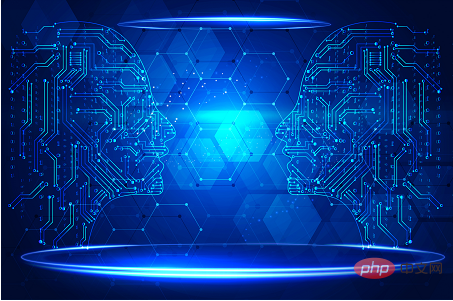

Medicine is one of the most exciting frontiers for artificial intelligence, but where will AI have a real impact on the future of healthcare? Rachel Roumeliotis, Vice President of Content Strategy at O'Reilly Media, answers here.
Few industries are as data-intensive as medicine. Medical data comes in many forms: images, audio, video, unstructured text, and structured information. All of this data is subject to traditional problems experienced by other industries: missing information, corrupted values, suspected outliers, missing labels, typographical errors, and more.
As medical databases grow, cleaning and labeling information becomes increasingly important. While we are still some way away from solving this challenge, we are seeing important progress like Holoclean and Snorkel. The former is an open source, machine learning-based system for automatic error detection and repair that has been successfully used in a variety of medical applications, including hospitals.
Meanwhile, Snorkel is an open source data programming tool that automates the time-consuming task of creating and programmatically labeling large datasets for training machine learning applications. The technology has already achieved major success in the medical field. A project to classify rare aortic valve malformations used a massive population-scale dataset from the UK Biobank and, using data programming, was able to automatically label approximately 4,000 previously unlabeled MRI sequences - something that would otherwise have to be done by hand. .
The same data programming tools have also brought success to biomedical image analysis and the extraction of knowledge hidden in existing resources. For example, the developers of Snorkel created a data extraction tool that combs through the biomedical literature to extract associations between traits and genomic variants. In this way, AI improves our medical knowledge while providing faster, more accurate diagnoses—an especially important consideration given the shortage of trained medical personnel.
One of the defining data challenges in the healthcare industry is the extremely sensitive nature of the information. Not only do we have to deal with people's personal medical histories, but pharmaceutical and other medical businesses naturally protect their data fiercely. However, giant leaps will require us to bring this data together to find insights that can help better understand the disease and improve treatments.
At an artificial intelligence conference in Beijing, Ion Stoica, director of RISELab at the University of California, Berkeley, described new projects that enable organizations to collaborate without actually sharing data. This new model of collaboration - called "co-opetition" - collects anonymized data to create a global library of models that each participant can use for their own projects.
What is particularly exciting about competitive learning is that it has applications in other industries with large datasets of sensitive data. For example, financial institutions could use the model to build more accurate and robust fraud models, demonstrating how pioneering technology in medicine will soon improve other areas of our lives.
However, this model is just one example of the new markets being developed in the healthcare industry. For example, one company that is creating technology for the future is Computable Labs, a startup that is building tools to create these new data marketplaces, solving important problems like market governance, assigning value to data in the marketplace, and ensuring Privacy Agreement.
RISELab takes this idea a step further by envisioning new two-sided markets that are mediated on both sides by artificial intelligence. To give just one example of how this works, let's say you're a diabetic and are using a service that recommends recipes based on your condition—but you don't like many of the dishes the service recommends. In a two-way, AI-mediated marketplace, your recommendation engine learns about your tastes and needs, then communicates with other engines to negotiate a satisfying menu.
However, developing new market mechanisms built on data flows would not only have significant implications for the healthcare industry; it actually represents an incredibly ambitious attempt to reimagine capitalism The inner workings of itself. While the data-intensive healthcare industry is an obvious place for this to occur, the applications are potentially limitless. This is just one example of how medicine not only helps us live long enough to enjoy a better, more technologically advanced future, but actually helps create it.
The above is the detailed content of Exploring the revolutionary impact of artificial intelligence on the future of healthcare. For more information, please follow other related articles on the PHP Chinese website!




